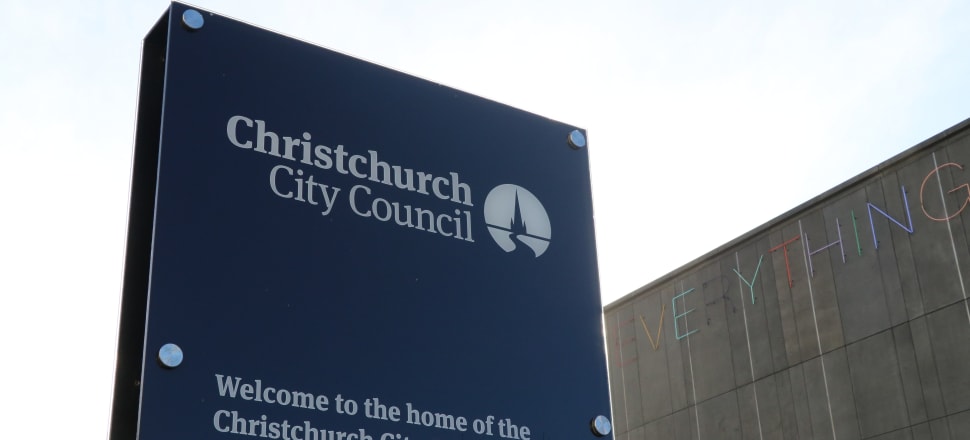
Straw poll of councillors is taken at closed-door workshops, despite Ombudsman's concerns about councils excluding public from key meetings
The timing was poor.
Christchurch city councillors were called to a closed-door workshop last month to discuss the possibility of selling city assets, with briefing documents only made available just before the meeting started.
The workshop was overseen by council chief executive Dawn Baxendale and chief financial officer Leah Scales, with options developed by the council’s arms-length holdings company, CCHL.
READ MORE: * Christchurch council tiptoes over stadium funding * Christchurch mayor backtracks on asset sales
Despite the lack of preparation and time to digest what they’d been told, councillors were asked for a show of hands to indicate their leaning towards particular options.
The workshop was held the same day Chief Ombudsman Peter Boshier released a report excoriating councils for holding secret workshops too often and for invalid reasons. Boshier's review, launched in August last year, focused on eight councils but not Christchurch City Council.
At another Christchurch council closed-door workshop, this time after Boshier’s report was published, councillors were encouraged to show support by placing sticky notes on a wall.
Revelations about the workshops were made public by former city mayor Garry Moore, in notes for his ‘Tuesday Club’ network. Newsroom has independently verified the details.
On Sunday, Moore wrote the council had been increasingly operating in secrecy, and hiding behind commercial sensitivity, and he worried the public was being kept in the dark.
In December last year, a report from Northington Partners recommended CCHL’s scope with council-held companies – like Lyttelton Port, the international airport, fibre broadband company Enable, and electricity lines company Orion – be broadened “to encourage a more dynamic and active approach to maximise portfolio performance”.
“We need as much transparency as possible given the significant public interest.” – Christchurch councillor Yani Johanson
Newsroom wrote to Mayor Phil Mauger and 16 councillors on Monday, asking why asset sales were discussed behind closed doors, with a vote taken in secret, and whether using sticky notes as a proxy for voting served the public interest.
Three councillors replied. Some are uncomfortable with the way the workshops on council asset sales have been run, and believe they’re being pushed towards asset sales.
Tyrone Fields, councillor for Te Pātaka o Rakaihautū/Banks Peninsula, says he’d be happy for conversations about asset sales to be held in public if the Ombudsman thought it was appropriate.
"I don’t think we have anything to hide, and I’m sure people won’t be surprised that different councillors have different thoughts on what constitutes an appropriate portfolio strategy and what 'value' means."
Spreydon councillor Dr Melanie Coker says the public will eventually have its say but she believes the closed-door briefings have been leading councillors "down one path" – towards asset sales.
"It’s just the extremity of that path that feels like it’s in question."
Coker says the sticky note episode happened after councillors were introduced to the proposed scenarios at the start of the workshop.
"We weren’t given any information ahead of time, presumably so we couldn’t share any information nor look further into the consequences of the options in our own time.
Yani Johanson, the Linwood ward councillor, has submitted a notice of motion to this week’s council meeting asking for the default setting for briefings to councillors and community board members to be open, instead of closed.
He believed most briefings could be held in public.
"In regards to CCHL, we need as much transparency as possible given the significant public interest in what is being discussed.
"I do not agree with the process of seeking straw poll directions at closed workshops/briefings."
(Newsroom has been told the tenor of CCHL briefings is council-held companies need large investments to maintain their dividends because they’re in a growth phase – an argument which, some councillors think, is designed to make full or partial sales seem more attractive.)
Boshier, the Chief Ombudsman, declined to comment.
Baxendale, the council chief executive, was on leave on Monday, as was Scales. (More on that later.)
Acting chief executive Mary Richardson said CCHL’s strategic review had been comprehensive and sparked several workshops, including the one held on October 24. It wasn’t made public because of commercially sensitive information.
"Given it was a workshop and not a formal meeting, no voting or decisions were being made."
(An indicatory show of hands is most likely not defined as a vote or decision.)
Richardson said Mauger and councillors "evaluated options and provided input and further guidance to CCHL on where they wanted more work to be done".
More than a dozen long-term plan briefings have been made public, she said. A briefing on December 13 “will include guidance to date except those parts that can’t be placed in the public domain for reasons such as privacy and commercial sensitivity”.

Since Baxendale arrived from Britain in 2019, the council has been in a downward spiral. Arguably, the global pandemic has been a factor.
Public satisfaction has dropped to intolerable lows, and, at the same time, staff turnover has increased as morale plummeted. Many criticisms by staff have been levelled at the executive team, including Baxendale, who commands a salary package well in excess of $500,000.
Dissatisfaction with the delivery of post-quake projects, including Te Kaha, the new central city stadium, and the troubled metro sports centre, Parakiore, no doubt contributed to the election of Mayor Mauger, who promised to get things done.
But he’s struggled to convert his promises into reality, whether that’s about keeping a lid on rates increases, or shoulder-tapping neighbouring councils to chip in for Te Kaha.
Asset sales is another broken pledge. Mauger said on the election campaign he wouldn’t sell the family silver but now he’s open to the idea.
The pressure of huge debt – the council and CCHL have about $1 billion each – and the prospect of huge, and dramatic-sounding, rates rises led the mayor to suggest cuts to some swimming pools and libraries. Or as he calls some libraries, “buildings with some books in them”.
Trouble at the top
Earlier this year, as the council grappled with a long-term fix for the fire-damaged and smelly wastewater treatment plant, general manager of infrastructure, planning and regulatory services Jane Davis and head of three waters Helen Beaumont were mysteriously said to be “off work”.
The pair were temporarily removed from phone and email lists, something described as a technical glitch.
Now, Scales, the general manager of resources, is on leave.
When Newsroom asked this past Friday when Scales would be back, the council said December 6. Further questions were met with the sentence: "The council does not comment on individual employee matters."
On Friday afternoon, acting chief executive Richardson – who has picked up Davis’s responsibilities and was doing Baxendale’s job while she was also on leave – emailed staff on Friday afternoon to say Scales was on sick leave.
(Asked how the council knew Scales would return on December 6, the council said: "We don’t have anything further to add.")
Richardson’s email confirmed the council’s head of people and culture, Peter Keegan, who was appointed in July, was also on leave. External contractor Rachel Wells – who had been filling in until Keegan was appointed – has been brought in to cover Keegan.
Beaumont has been replaced by Brent Smith, Richardson confirmed. However, a decision hasn’t yet been made about a replacement for Davis, who quit in July but whose resignation only took effect from September 1.
It was in September of last year Davis told Newsroom the council had an action plan to address many issues raised by staff, including a review of pay and benefits that should be completed in March.
Except it wasn’t, we reported in June.
Scales said at the time the remuneration review only started in May, and should be completed by September.
Except, again, it wasn’t.
This past week we asked the council for an update, including details of progress, including who is working on the review and when it will be completed.
Richardson said, in full:"Work is progressing on this and we intend to provide an update to staff by Christmas."
In summary, in February and March of last year, surveyed Christchurch council’s staff named low pay, relative to similar jobs, and paltry pay rises, as a major issue. Faced with high staff turnover, council executives promised to review the issue. Now, 20 months later, it’s not finished, and it won’t even be completed by Christmas.
Next year’s staff survey should certainly make for interesting reading – in the same year Baxendale’s contract expires.







